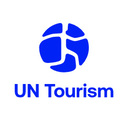World Tourism Day 2021: Inclusive Growth at the Centre of Tourism’s Restart
Global tourism has reaffirmed its commitment to making the sector a pillar of inclusive growth. At the official World Tourism Day 2021 celebrations in Abidjan, Cote d’Ivoire, political and business leaders united behind a common message of solidarity and determination to ‘leave nobody behind’ as tourism restarts and grows back.
Prime Minister Patrick Achi and Minister of Tourism Siandou Fofana welcomed international delegates, signalling Cote d’Ivoire’s firm support of tourism and Tourism Ministers from 12 countries, the biggest Ministerial participation for an official World Tourism Day celebration. The day featured 1,500 participants, including representatives of international organizations and the private sector.
“Showing tourism’s human face”
The Prime Minister said that “Cote d’Ivoire is proud to host a World Tourism Day like no other. It is important that we realign tourism so the sector meets the hopes and expectations of people. Tourism is a key sector for Cote d’Ivoire’s growth and development. And the right path for Cote d’Ivoire is also the right path for all of Africa, using tourism as a locomotion to drive our economies forward and create jobs for women and youth.” Minister of Tourism Siandou Fofana added that World Tourism Day 2021 “showed the human face of tourism,” stressing the sector’s unique ability to lead recovery from the impacts of the pandemic, in Africa and worldwide.
Innovation, investments and inclusion
Ministers and experts explored how the pledge to drive inclusive growth can be achieved. The importance of innovation, targeted investments and of strengthened collaboration between public and private sectors was made clear. The speakers also underscored the need for inclusive policymaking as tourism slowly returns and looks to the future.
Opening the day, UNWTO Secretary-General Zurab Pololikashvili stressed the sector’s “commitment to inclusive growth so that tourism’s restart brings hope for millions worldwide and ensures that everyone who has a stake in tourism also has a say in its future”.
A future built around shared values
In addition to recognising the challenges of the present, World Tourism Day also looked to the future. In Abidjan, “The Future of Africa” focused on the potential of the continent’s youth as well as its innovators and entrepreneurs. Against the backdrop of World Tourism Day, UNWTO signed two Memorandums of Understanding, reflecting the broad scope of tourism’s reach and relevance. The Didier Drogba Foundation, chaired by one of Africa’s most-recognized and celebrated athletes, agreed to actively commit to UNWTO’s goals and values, above all to providing opportunities for African youth and those living in rural communities. Stressing the importance of tourism as a driver of opportunity for the continent, Channels TV of Nigeria joined as a new UNWTO media partner and will now actively incorporate the theme of tourism for development within its editorial commitments.
Underscoring UNWTO’s leadership in uniting all of the tourism sector, its Affiliate Members also met in Abidjan, bringing together African businesses as well as civil society leaders, academics and destination management organizations. The side event showcased the benefits of being part of the global Affiliate Members Network and the technical support and networking opportunities available through being part of UNWTO’s work.
About UN Tourism
The World Tourism Organization (UN Tourism) is the United Nations agency responsible for the promotion of responsible, sustainable and universally accessible tourism.
As the leading international organization in the field of tourism, UN Tourism promotes tourism as a driver of economic growth, inclusive development and environmental sustainability and offers leadership and support to the sector in advancing knowledge and tourism policies worldwide.
Our Priorities
Mainstreaming tourism in the global agenda: Advocating the value of tourism as a driver of socio-economic growth and development, its inclusion as a priority in national and international policies and the need to create a level playing field for the sector to develop and prosper.
Promoting sustainable tourism development: Supporting sustainable tourism policies and practices: policies which make optimal use of environmental resources, respect the socio-cultural authenticity of host communities and provide socio-economic benefits for all.
Fostering knowledge, education and capacity building: Supporting countries to assess and address their needs in education and training, as well as providing networks for knowledge creation and exchange.
Improving tourism competitiveness: Improving UN Tourism Members' competitiveness through knowledge creation and exchange, human resources development and the promotion of excellence in areas such as policy planning, statistics and market trends, sustainable tourism development, marketing and promotion, product development and risk and crisis management.
Advancing tourism's contribution to poverty reduction and development: Maximizing the contribution of tourism to poverty reduction and achieving the SDGs by making tourism work as a tool for development and promoting the inclusion of tourism in the development agenda.
Building partnerships: Engaging with the private sector, regional and local tourism organizations, academia and research institutions, civil society and the UN system to build a more sustainable, responsible and competitive tourism sector.
Our Structure
Members: An intergovernmental organization, UN Tourism has 160 Member States, 6 Associate Members, 2 Observers and over 500 Affiliate Members.
Organs: The General Assembly is the supreme organ of the Organization. The Executive Council take all measures, in consultation with the Secretary-General, for the implementation of the decisions and recommendations of the General Assembly and reports to the Assembly.
Secretariat: UN Tourism headquarters are based in Madrid, Spain. The Secretariat is led by the Secretary-General and organized into departments covering issues such as sustainability, education, tourism trends and marketing, sustainable development, statistics and the Tourism Satellite Account (TSA), destination management, ethics and risk and crisis management. The Technical Cooperation and Silk Road Department carries out development projects in over 100 countries worldwide, while the Regional Departments for Africa, the Americas, Asia and the Pacific, Europe and the Middle East serve as the link between UN Tourism and its 160 Member States. The Affiliate Members Department represents UN Tourism's 500 plus Affiliate members.
UN Tourism Communications Department
+34 91 567 8100
UN Tourism
